
MENUMENU
TALK TO AN EXPERT
Special Hours: 7AM – 6PM PST
TALK TO AN EXPERT
Special Hours: 7AM – 6PM PST
Do you feel like getting away from it all? Are you interested in running all your essential electronics without relying on the power grid? If so, we don’t blame you. There’s a strong sense of freedom in knowing that you don’t have to be tethered to the grid to charge your laptop, power your lights, or even run your AC. But in order to turn this dream into a reality, you’ll need an excellent off-grid power system that meets your lifestyle and energy needs.
This article looks at what you need to know about off-grid power systems to get started, including the benefits, types, and how to overcome any drawbacks. Let’s get started.
An off-grid power system is any setup that takes an alternative power source and converts it into usable electricity. These energy systems allow you to stay off the main power system that almost everyone connects to.
Your mind might go right to solar and wind energy for this, but generators are also off-grid power systems. Your alternative power source can use either renewable energy or fossil fuels. The point is that it doesn’t use electricity from the power grid.
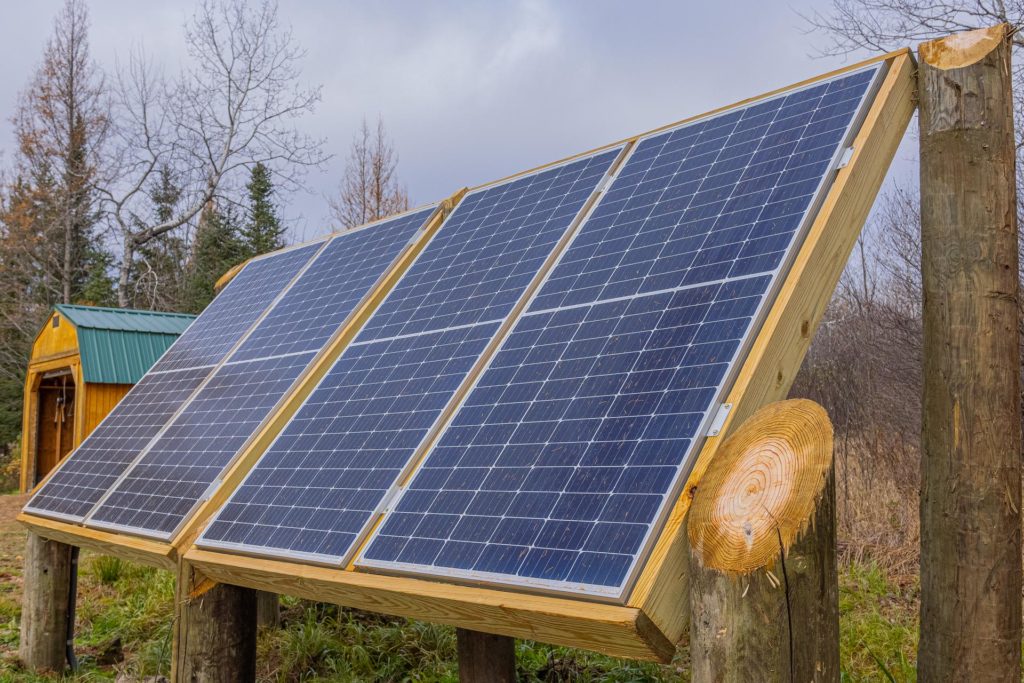
There are many benefits of using an off-grid power system. Let’s take a look at the two most common advantages.
Hands down one of the best benefits of off-grid power is that you can build or take it anywhere. No grid interconnect is needed so you can have all the comforts you have become accustomed to anywhere you want.
Whether a cabin in the mountains, RV out in the desert, or boat in the middle of the ocean, an off-grid power system can provide where the grid cannot.
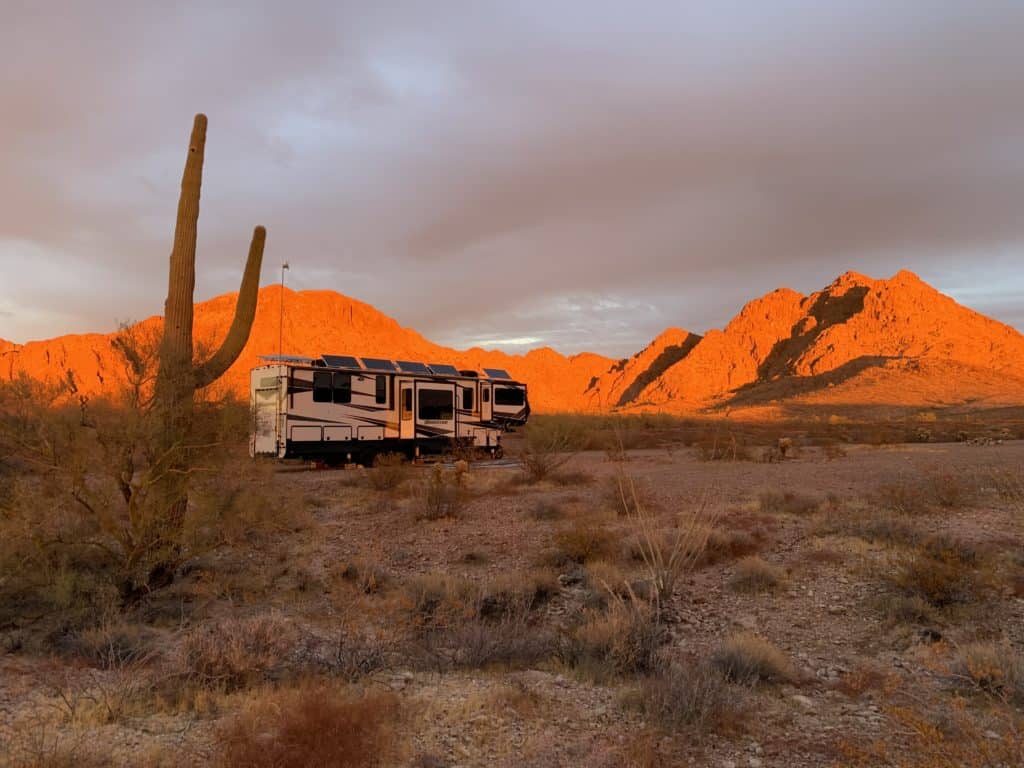
Another top advantage of having an off-grid power system is a reduced carbon footprint. If you’re environmentally minded, you’ll be able to feel better about your energy consumption. Not only that, but a reduction in your carbon footprint typically means a reduction in your energy costs over time as well.
As you bask in the joy of reducing your fossil fuel use, you can also enjoy the amazing sense of freedom that comes with energy independence. Was there a storm that caused widespread power outages? No problem. You can even take your energy system with you as you travel. With true energy independence, there are limitless possibilities. You are your own power grid.
So how do you gain this amazing sense of freedom? With one of the most common off-grid power solutions, of course.
At the heart of any good off-grid power system is a set of good batteries. Here at Battle Born Batteries, this is what we specialize in. While batteries don’t make the power you use they are essential in storing it from various sources. Like your phone that charges from many different places that can be taken off-grid, batteries can do the same for your entire power system.
Most of our customers at Battle Born Batteries use our products to get off-grid comfortably. Our batteries provide a place to store energy from any source you want to connect to. Let’s now take a look at a few power sources for off-grid systems.
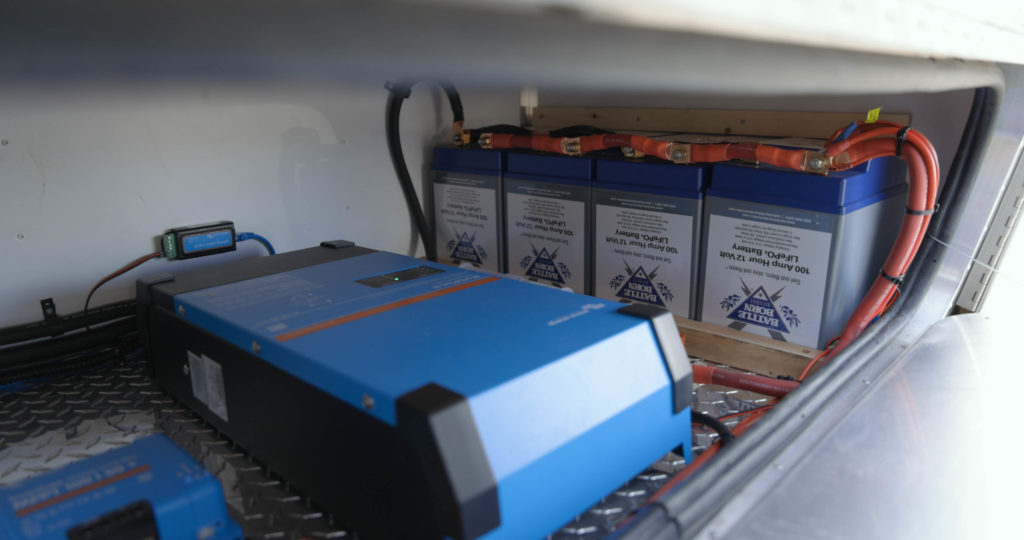
Typically, we don’t think of a generator as a way to reduce our carbon footprint or get us off the grid. But let’s take a step back and compare it to being connected to the grid.
Generators work by taking a fuel source, such as gasoline, diesel, or propane and turning it into AC power. Thus, when you power your boat or RV with a generator, you’ll be able to run your devices as if you were connected to shore power.
While generators provide you with a sense of freedom because they’re portable, they still rely on fossil fuels. This can get expensive, especially if you’re running it for long periods of time. However, if you have a good battery system and only use your generator to charge your batteries (or perhaps your AC or other large loads when it gets really hot), you’ll still probably use less energy than you would when connected to the grid.
This is definitely a favorite for off-grid power systems, and for a good reason. Solar panels use photovoltaic cells to harness the sun’s energy and convert it into DC electricity, which an inverter can then turn into AC power.
→ Learn all the Major Components of an Off-Grid Solar System here.
Solar panels are fantastic because they provide clean, free energy. The main expense you’ll have to worry about is the initial investment. Depending on how many watts of solar power you invest in, how big your battery bank is, and how large of an inverter you have, you could potentially power anything. However, the main drawback with solar power is that the sun doesn’t shine all the time, hence why you’ll need a good battery system.
Many times, off-grid power systems consist of more than one power source, like solar for the primary and a generator for backup.
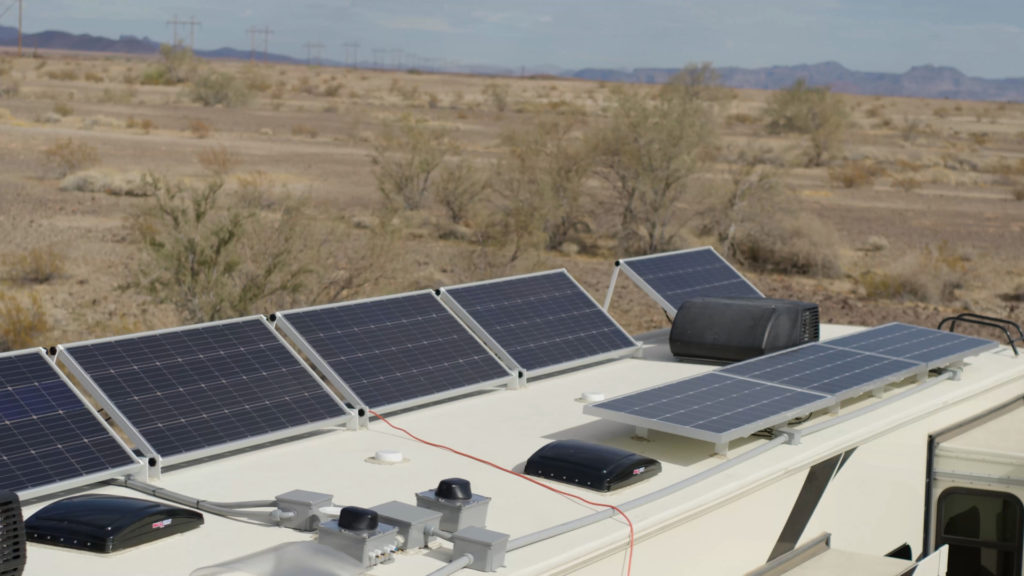
We typically think of large wind turbines placed offshore or within the mountains when we think of wind power. However, did you know that you can have your own personal windmill to power your electronics? These small wind turbines use the power of the wind to create usable electricity.
They typically range from 400W to 20kW, depending on the size of the turbine. Because they only create electricity when the wind is blowing at a certain speed, many people use them in conjunction with the electrical grid or a solar setup.
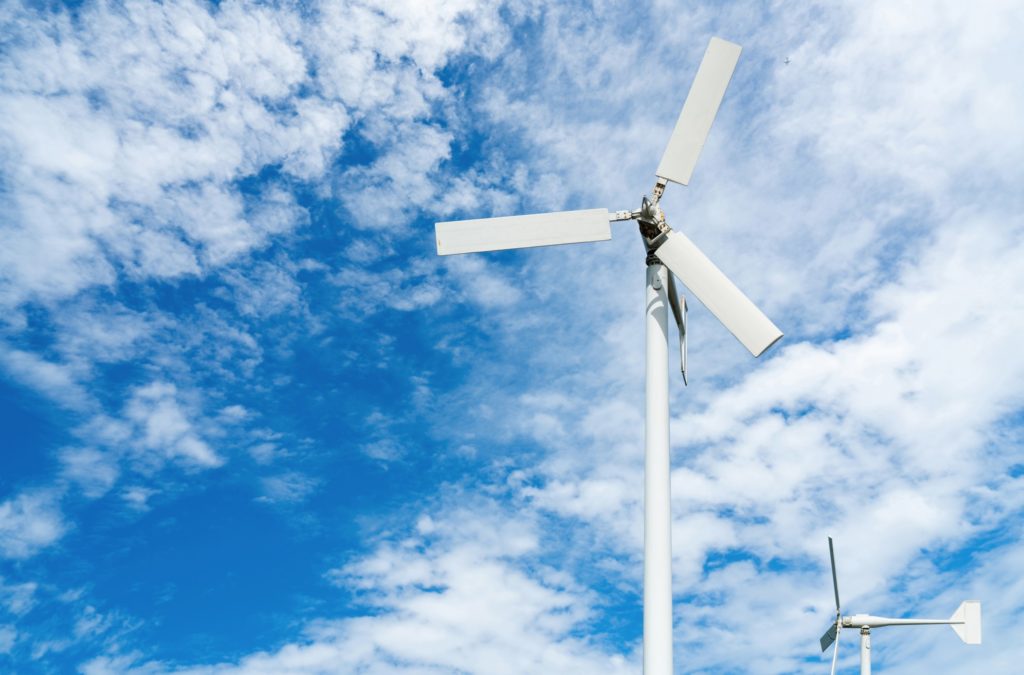
Hydropower, of course, requires a water source and is less commonly used for personal off-grid systems. When you think of hydropower, you usually think of giant dams and huge turbines. But you can build a small version for yourself if you have access to a stream.
Hydropower can be very damaging to a stream or river ecosystem so it’s important that you learn about it before building a dam. Even without a dam, however, a water wheel or small turbine can act as an auxiliary power source to supplement charging your batteries.
As amazing as off-grid power solutions seem, these systems aren’t perfect. They can definitely have their disadvantages. Let’s take a look at the main drawbacks of off-grid power.
There’s no doubt about it; understanding how your off-grid power system works can be a huge learning curve. If you’re not already familiar with the ins and outs of solar, wind, or generator power, you’ll want to do some reading. When you’re generating your own electricity, you need to know how much power you typically use, what equipment you’ll need, and the availability and cost of that equipment.
Additional Reading: How Much Solar Do I Need?
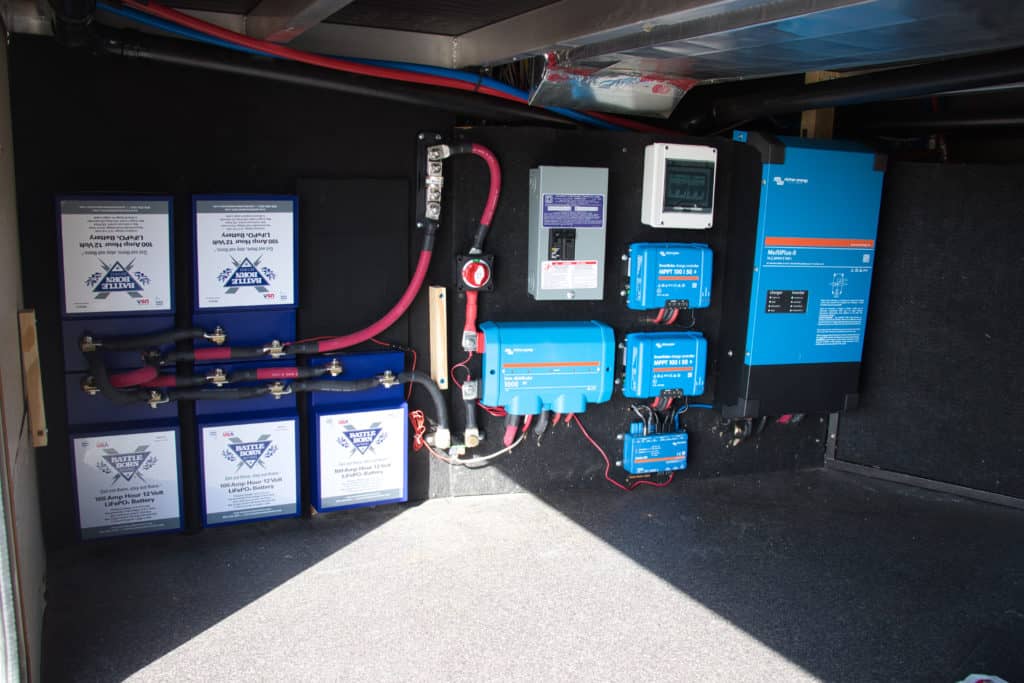
Another common drawback of off-grid power systems includes the variability of resources. The amount of wind or solar you receive will depend on your location and the weather in that area. Thus, if you experience a stretch of cloudy weather, you won’t be able to use your solar panels to their fullest, and the same goes for wind power on calm days. This factor has always been a hurdle for renewable energy, and it’s the main reason why battery manufacturers are so focused on improvement and innovation.
→ Find out just how well solar panels work in cloudy weather and in snow.
Lithium batteries, like our Battle Born line, are the leading innovation in battery manufacturing. Their advanced technology offers a reliable and convenient way to power your RV, boat, or house when the wind isn’t blowing. Let’s see how these off-grid power solutions work.
Lithium batteries are amazing because they can handle frequent charge and discharge cycles without the permanent capacity loss that other batteries experience. This is because they’re much more efficient than lead-acid batteries, allowing them to charge faster and handle deeper discharges. For example, lead-acid batteries can really only handle a 50% discharge. However, lithium batteries can typically handle up to 95-100% discharge.
Lead-acid batteries also need to be recharged fully every day, which solar frequently won’t do. Our lithium batteries can bounce around in the middle of the charge range without the need to fully recharge without damage.
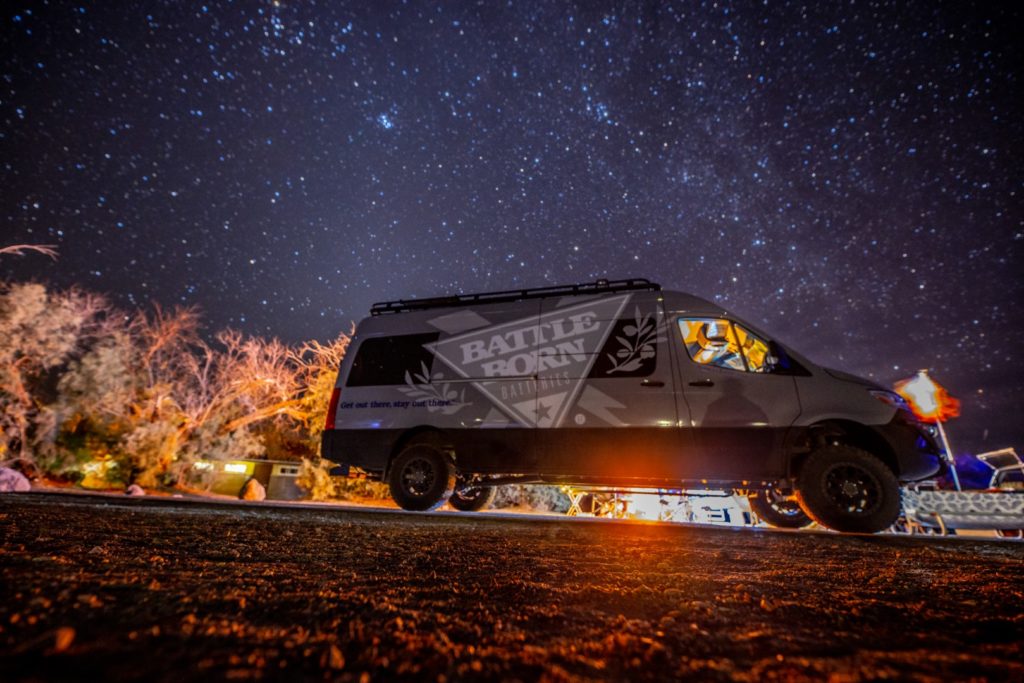
Because lithium batteries are so efficient, they have much longer lifespans. Batteries can only be discharged and recharged so many times before they start to malfunction. Thus, no battery lasts forever.
Nevertheless, our lithium batteries can easily discharge and recharge 3,000-5,000 times. At that point, the battery will still hold 75 to 80% of its energy capacity.
In contrast, lead-acid batteries will typically last well less than 1,000 cycles under perfect conditions.
Lithium batteries are also very energy-dense. This means that they can pack more power into a smaller space compared to other types of batteries. Moreover, Peukert’s law doesn’t have as much of an effect on them. This means that lithium batteries can charge and recharge at much higher rates than lead-acid batteries without losing capacity.
The charge time of lithium batteries is fast. Just how fast? Only one to two hours in most cases!
Compare this to the eight hours that a lead-acid battery takes to recharge, and it’s clear which one will be able to meet your needs more efficiently. They are also much more efficient as they have very little loss during the recharge process. Energy in = energy out. Not so with other battery types.
One of the best things about lithium batteries is that you don’t have to maintain them. You can rest easy knowing that there are safety systems built into the batteries. As long as you’re using them as recommended, they’re going to keep working until they reach 3,000-5,000 charge cycles and possibly more. Even at those high cycles, they will still retain 75-80% of their original capacity.
In contrast, lead-acid batteries require frequent watering and cleaning and come with strict charging instructions. Even “maintenance-free” sealed or AGM lead-acid batteries need occasional equalization charges and must be charged fully every cycle for maximum life.
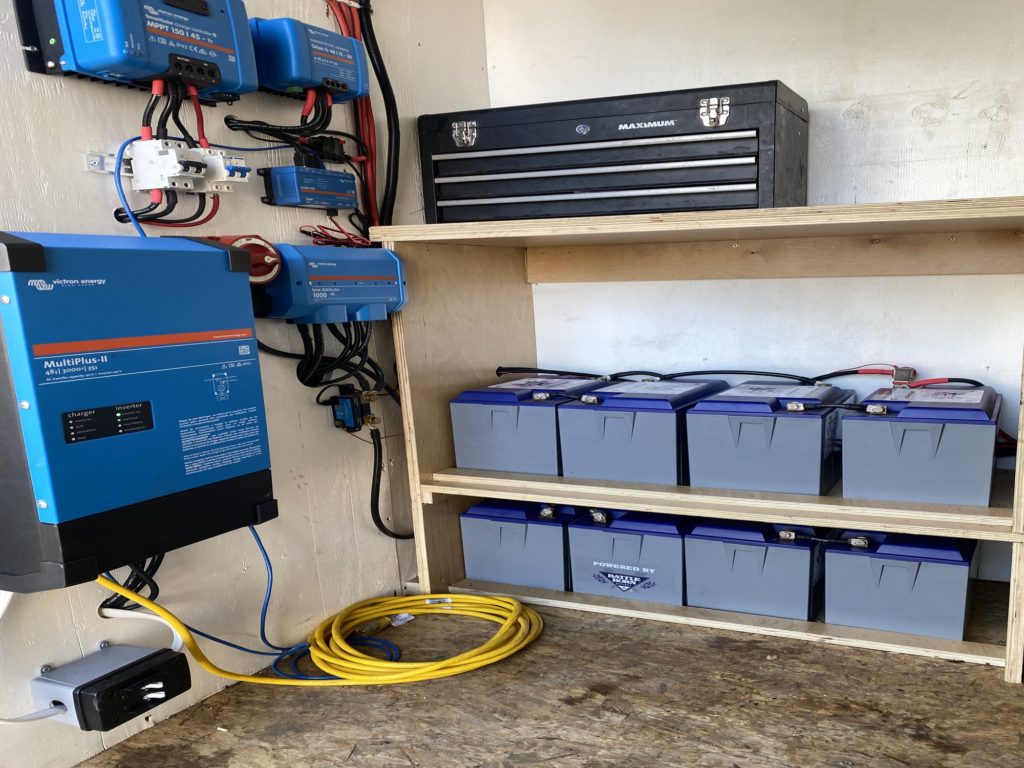
You really can’t have an epic off-grid system without a good battery bank. After all, off-grid power solutions like solar power, wind turbines, and even generators aren’t meant to run continuously. You’ll need a way of storing that power for the times when the sun isn’t shining, and the wind isn’t blowing.
The best way to save that energy is through high-quality lithium batteries. They can hold a ton of power, and they’ll last a long time without the headache of regular maintenance.
What’s your preferred off-grid system?
We know that building or upgrading an electrical system can be overwhelming, so we’re here to help. Our Reno, Nevada-based sales and customer service team is standing by at (855) 292-2831 to take your questions!
Also, join us on Facebook, Instagram, and YouTube to learn more about how lithium battery systems can power your lifestyle, see how others have built their systems, and gain the confidence to get out there and stay out there.
Shop Best Sellers








Ask a technical specialist now at 855.292.2831
Stay in the Know
One thought on “What Is the Best Off-Grid Power System?”
Great insights on off-grid power systems! I’m particularly interested in how different battery technologies can impact efficiency and longevity. Any thoughts on the advantages of lithium-ion over AGM in real-world applications?